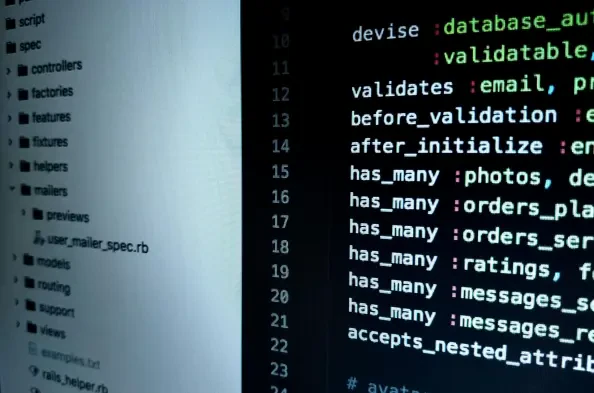The decision to suspend development on the Kapitano antivirus GUI tool for Linux, following a sequence of personal attacks on its creator, “zynequ,” sheds light on a growing concern in the open-source community. Kapitano was designed to offer a user-friendly graphical interface for ClamAV, an antivirus engine that relies on command-line interaction, thus limiting accessibility for individuals not comfortable with terminal use. The abrupt halt of this project stemmed from a contentious encounter on Codeberg, where a user accused Kapitano of generating false positives for viruses and malware on their Linux Mint system. This individual not only raised suspicions about the tool’s reliability due to a lack of reviews but also advised against its use until the source code could be independently verified.
The Developer’s Dilemma
Harsh Criticism and Misinformation
In response to the accusations, zynequ clarified that the false positives were directly connected to ClamAV, as Kapitano solely provided a frontend and exerted no impact on the identification process. They sought to deflect misinformation by directing interested individuals to the code sections responsible for the issue, allowing for transparent public review. Ignoring this explanation, the disgruntled user continued to propagate baseless claims, labeling zynequ a “malicious actor” and asserting that Kapitano was purposely spreading malware. This sequence of harsh interactions created an environment rife with accusations and falsehoods, ultimately resulting in the developer’s demoralization.
The ordeal exemplifies a broader challenge that many independent developers face. They often become easy targets for aggressive criticism, which is exacerbated by the open nature of their work. The pressure stemming from these interactions may discourage developers from continuing their voluntary work, particularly when these criticisms are rooted more in user misunderstanding than in fact. This points to the urgent need for fostering a more supportive environment that allows developers to thrive without fear of undue harassment, ensuring transparency and open communication without hostility.
Personal Cost of Unwarranted Attacks
The series of relentless personal attacks demoralized zynequ, forcing them to terminate the project’s further development. Kapitano was an altruistic initiative pursued in zynequ’s spare time, lacking any financial benefactors. The persistence of negative exchanges ultimately depleted the developer’s motivation, prompting the decision to mark the tool as “Not Maintained.” In tandem with this, they delisted it from Flathub and released the code under The Unlicense in the public domain. Over the next few months, the developer also intended to delete the repository on Codeberg and close their account.
This situation serves as a stark reminder of the personal costs associated with user harassment in open-source development. Developers often invest significant passion and energy in projects driven solely by interest and the desire to contribute to the community. Yet, these unpaid efforts face the constant risk of being undermined by undue skepticism and hostility. It underlines the significance of giving appreciation and support to voluntary undertakings, fostering an atmosphere valuing constructive feedback over confrontation.
Broader Implications for Open-Source Projects
Community Impact and Developer Exodus
The episode involving Kapitano illuminates recurring themes prevalent in the open-source development community, revealing how independent or hobbyist developers frequently endure unsolicited and unproductive criticism. These harrowing experiences serve as a poignant reminder that public scrutiny, while essential for open-source evolution, can swiftly devolve into harassment if unchecked. As seen in this case, such negative interactions risk driving talent away, depriving the broader community of innovation and contributions.
This narrative mirrors broader challenges within the open-source sphere, as developers grapple with balancing open access with the potential vulnerabilities that arise. Developing a more constructive feedback culture could mitigate instances of developer withdrawal, ensuring healthier engagement in open-source spaces. By nurturing an environment that values respect and constructive critique, the community can ensure continued enthusiasm and commitment from developers investing their time and expertise.
Lessons for Future Engagement
The saga of Kapitano reinforces the importance of a unified consensus among developers regarding the rightful recognition for voluntary contributions, irrespective of their scope or influence. The public’s collective role in shaping a more positive and encouraging atmosphere is emphasized, where constructive dialogue and mutual respect serve as foundational tenets. Encouraging community members to focus on empathy and understanding can lead to less hostile interaction and foster more productive collaboration and learning.
Moving forward, both developers and users should embrace a cooperative spirit, recognizing that passion-driven projects are inherently backed by the labor of dedicated individuals. Through mindful engagement, the open-source movement can sustain its vibrancy and resilience against adversities. This episode sets the stage for reflection among developers and end-users alike, recognizing the potential emotional toll personal attacks can extract from those spearheading such efforts.
Reflecting on a Community-Wide Challenge
In response to the accusations, zynequ clarified that the false positives were related directly to ClamAV. Kapitano only supplied a frontend and had no influence on the threat identification process. Zynequ attempted to counter the misinformation by directing individuals to specific code sections causing the issue, encouraging public evaluation. Despite this clarification, an unsatisfied user persisted in spreading unfounded allegations, calling zynequ a “malicious actor” and claiming Kapitano intentionally spread malware. This exchange of accusations and falsehoods led to the developer’s demoralization.
This situation reflects a larger problem faced by independent developers, who are frequently easy targets for intense criticism, further aggravated by the transparency of their work. Such pressures can deter developers from continuing their voluntary efforts, especially when criticisms are based more on misunderstanding than reality. This underscores the urgent need to create a supportive environment that allows developers to flourish without the fear of undue harassment, promoting transparency and open communication while minimizing hostility.






